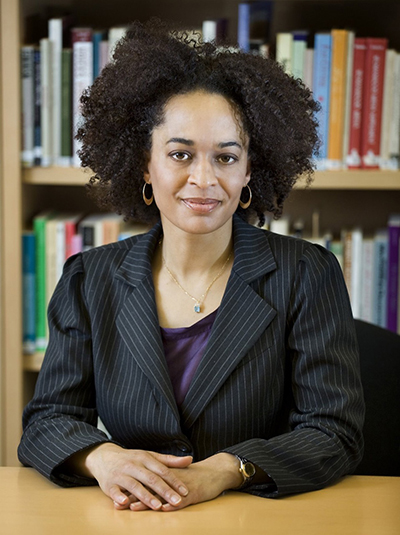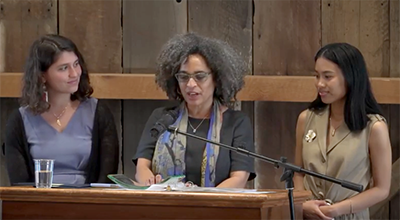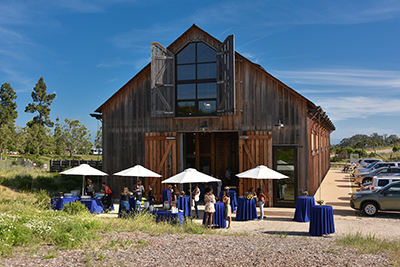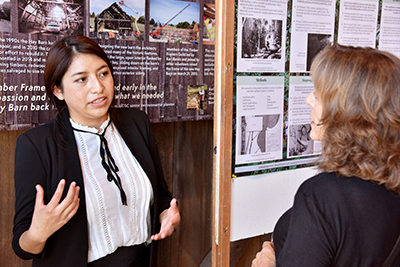Professor of feminist studies Gina Dent was presented with the John Dizikes Teaching Award in Humanities at the Humanities Division’s 2019 Spring Awards celebration held at the Cowell Ranch Hay Barn.
Established in 2002 to honor outstanding teaching by humanities faculty, the annual award is named in honor of emeritus professor John Dizikes, one of UC Santa Cruz’s founding faculty members. It is designed to celebrate the Humanities faculty’s commitment to excellence in teaching and its impact on undergraduate students.
In addition to being honored with a check for $3,000, the faculty winner is also entitled to select an undergraduate student to receive a $3,000 scholarship. Dent chose to split the prize between two senior graduating students in feminist studies—Summer Al-Saleh and Issabella Nguyen.
Since joining the faculty at UC Santa Cruz in 2002, Dent has been praised by both students and colleagues for creating an inclusive learning environment that both challenges and encourages students, and her teaching has been characterized as life-changing and rigorous.
“Being a professor is a great privilege, for many reasons, but especially because we can allow ourselves a life of continuous recalibration,” said Dent. “For me, the classroom is a space to redress what I perceive as a primary political problem: the anti-intellectualism that pervades our social world.”
“I seek to respark the form of curiosity that most are forced to lose, unfortunately, as we grow and move through academic spaces, a curiosity that is necessarily dangerous to the status quo. To do this, I have to minimize what are distractions for me—complex audio-visuals or lectures that must be read—so that I can meet the eyes of my students.”
“My teaching is improvisational in the sense that I learned from black musics; strong preparation, intense listening, a respect for silences, and an openness to being changed in the moment are all requirements,” she added.
Student scholarship recipient Summer Al-Saleh noted that Dent’s teaching and mentorship have been invaluable and critical to her while attending UCSC.
“I want to thank her for encouraging and nourishing my academic interests, for challenging and pushing the questions I ask, and for supporting me in continuing my education post-graduation,” said Al-Saleh. “As a student whose political commitments and academic interests are not always supported in the university, it means a great deal to receive this scholarship--the encouragement and sense of solidarity from Gina has been and remains so important to me."
Acting humanities dean and literature professor Karen Bassi addressed the audience prior to the presentation of the awards.
“The importance of the humanities is particularly acute in this age of global capitalism, ongoing civil and foreign wars, ‘fake’ news, the disputed meaning of ‘social’ in social media, the rise of data-driving thinking, global warming, and the increasing reliance on--what is something of an oxymoron--artificial intelligence,” Bassi observed.
“Research and teaching in the humanities is focused on viewing these and other real-world challenges through the critical lens of human intelligence, guided by the principle that both human and non-human creatures deserve what the ancient Greeks called ‘eudaimonia,’ the good life. Students in humanities departments and programs learn that living a good life begins with posing and debating some essential questions: what constitutes justice, what are the barriers to achieving equality, what forms of communication are most effective, what stories--old and new-- can move us to do the right thing, and what are the bases of power.”
“What we celebrate today are the myriad ways in which our students and faculty think through these questions and work together to find answers,” she added.






